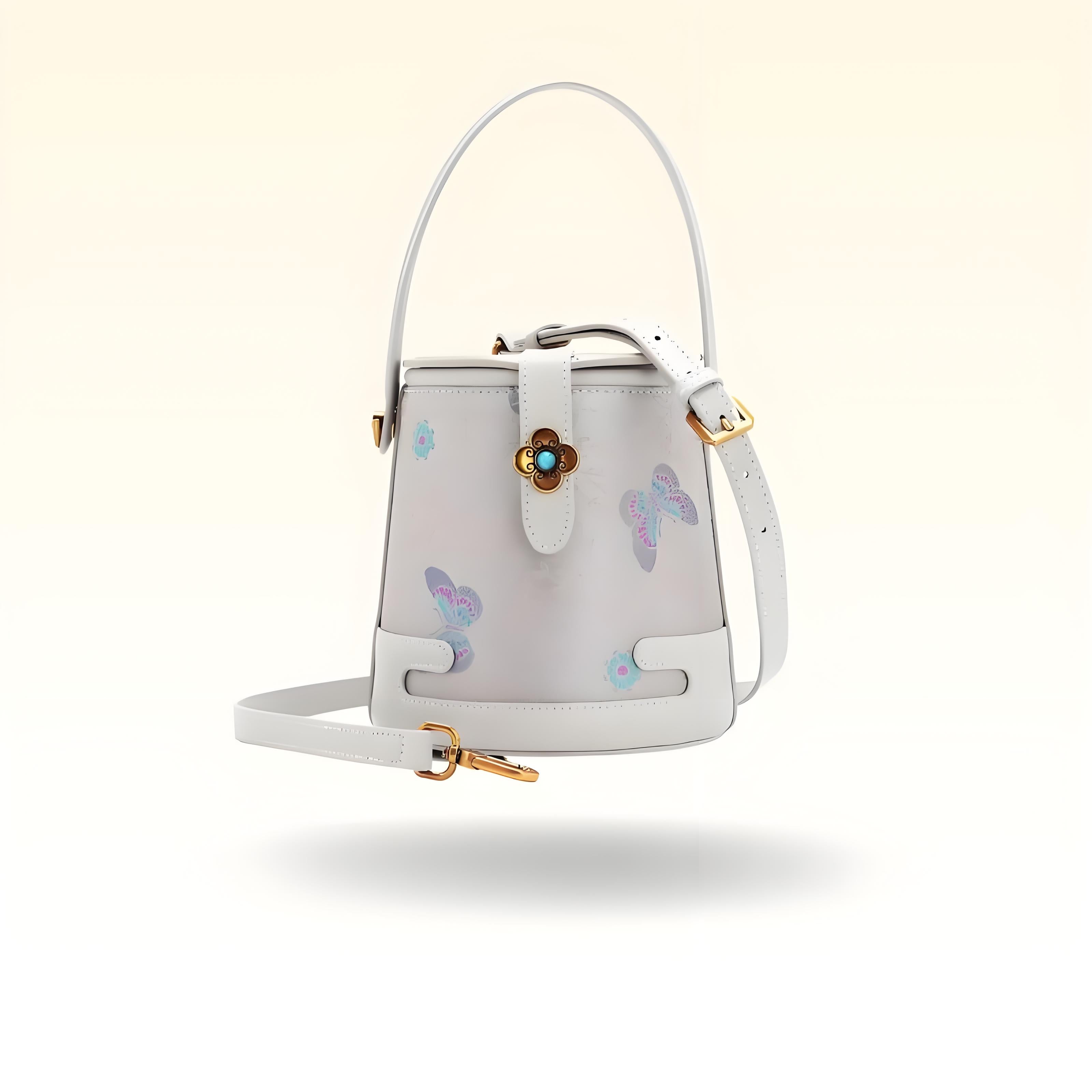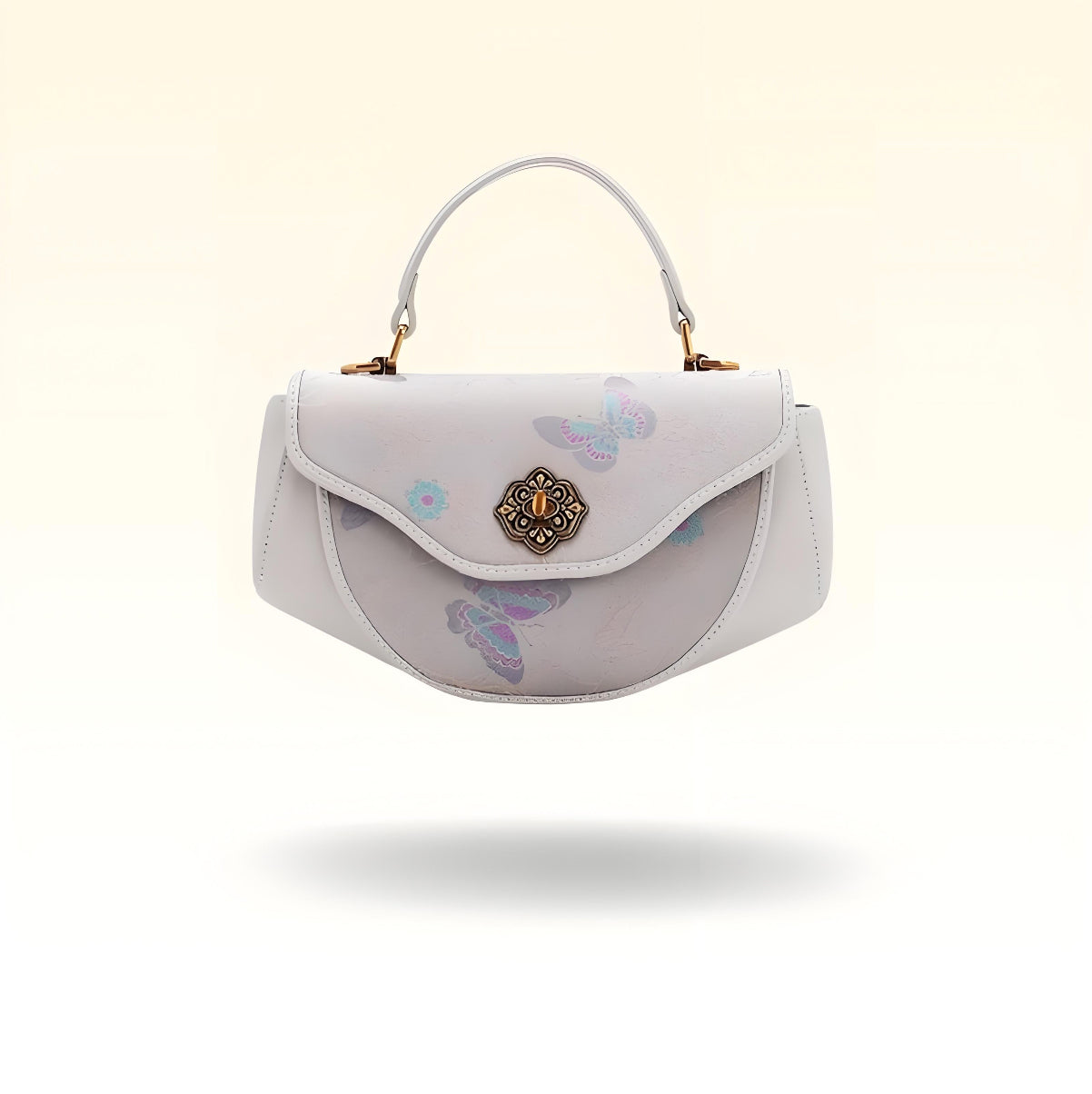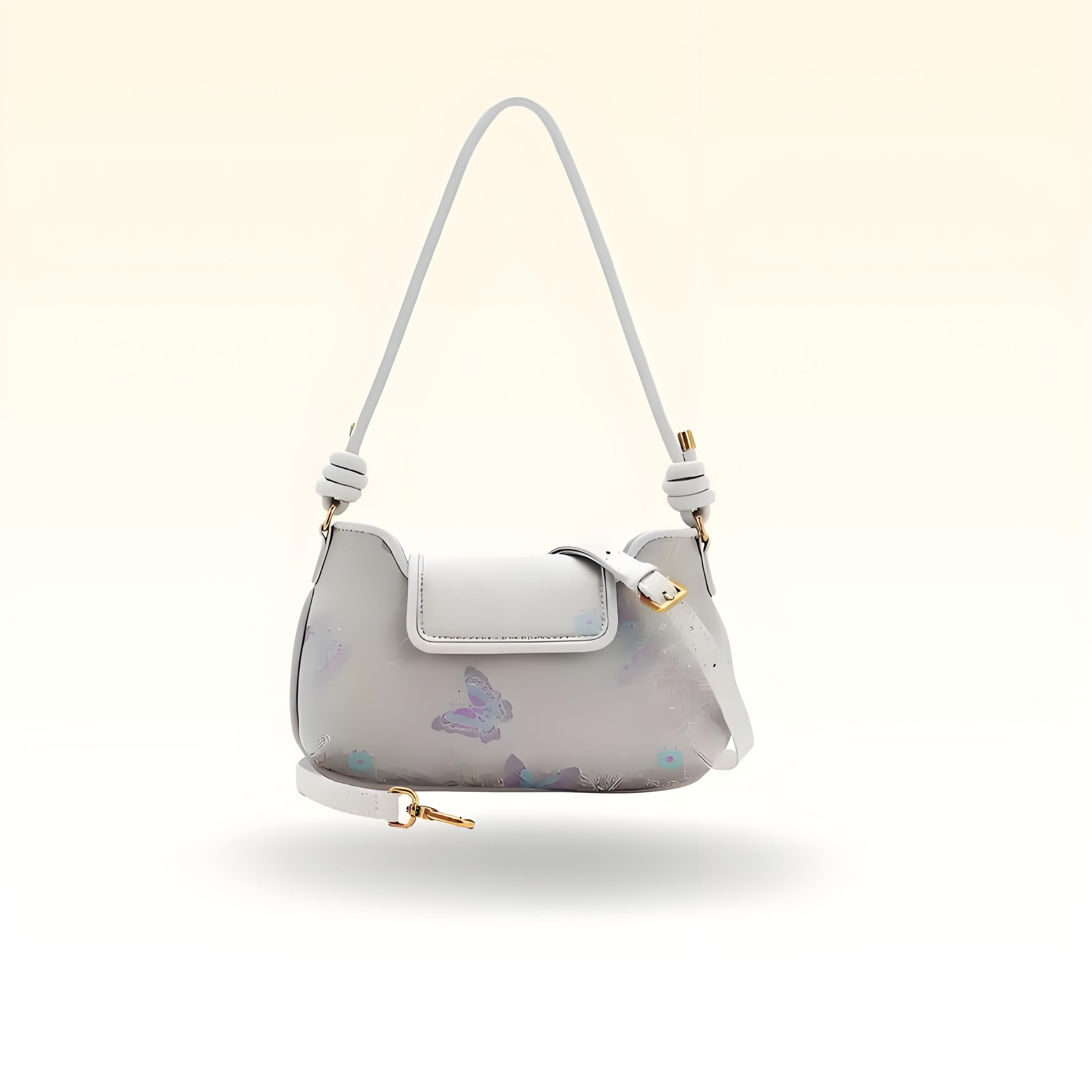
The butterfly is a cherished symbol in Chinese culture, representing transformation, freedom, and eternal love. Its graceful form and life cycle make it a metaphor for personal growth and romantic devotion.
Butterfly Symbolism in Chinese Culture

How Butterflies Reflect Women’s Qualities

Did You Know?
Liang Zhu (梁祝)
Rosylnn Inspired by Butterfly
Daily Care for Your Bags
- Keep away from dust and sunlight: Brocade bags are prone to attracting dust. Store them in a dust bag and avoid direct sunlight to prevent fading or fabric brittleness.
- Use a dry, ventilated storage area: Humid environments can cause mold or fabric distortion. Add silica gel packets to keep the storage space dry.
Avoid contact with sharp or rough objects: The delicate threads and patterns of brocade can easily be scratched. Keep the bag away from keys, zippers, or other sharp items.
Limit heavy loads: Do not overfill the bag with heavy items to prevent deformation or damage to seams.
Handle light stains with care: Gently wipe stains with a soft, dry cloth. Avoid wet cloths or strong detergents, as they may cause fabric distortion or fading.
Seek professional cleaning for deep stains: For significant dirt, use professional fabric cleaning services instead of washing or machine cleaning at home.
Keep away from liquids: Brocade fabric is sensitive to water and other liquids, which may leave permanent stains. Avoid contact with beverages, cosmetics, or rain.
Apply a fabric protector spray: Use a specialized fabric waterproofing spray, but always test it on an inconspicuous area first.




